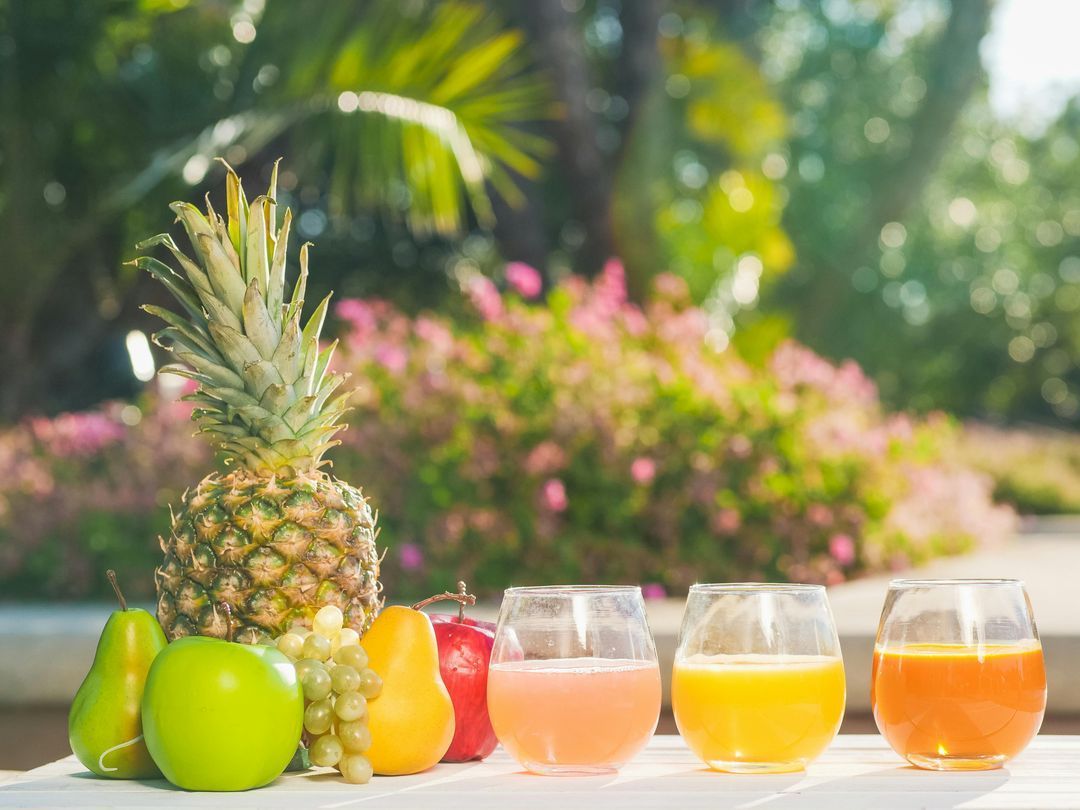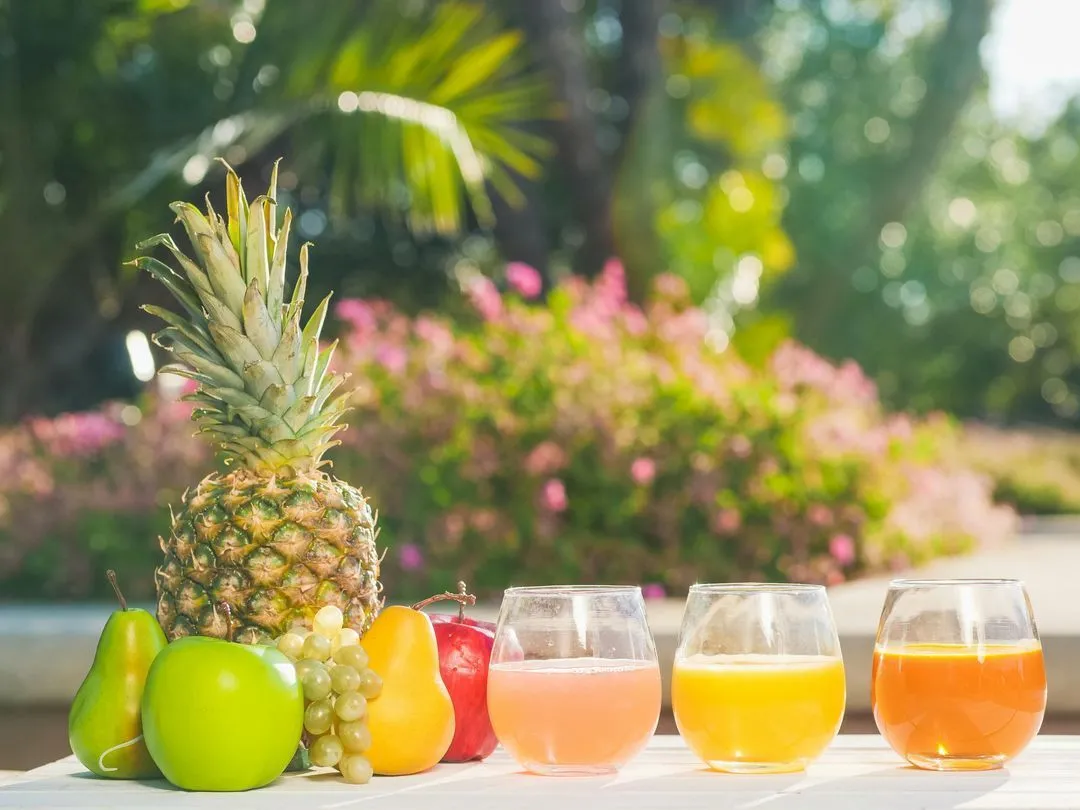Discover the Truth About Juice: What's Really in Your Glass?

When we head to the supermarket and grab a bottle of fruit juice, we often assume that what were about to drink is healthy and nutritious. Yet, as with many other food products, the reality is more complex than it seems at first glance. Whats the difference between fruit juice, nectar, and drink? And how do you choose the healthiest one for you? Lets find out together!
The Difference Between Juice, Nectar, and Drink
The difference between these three terms is fundamental not only for your health but also to understand exactly what you are drinking. Here is a practical guide to help you navigate the various labels you might find at the supermarket:
- Fruit Juice (100%): This product contains only fruit. If a label states that the product is “100% fruit juice,” it means the bottle contains only juice extracted from fresh fruit, without any other added ingredients (except sometimes natural preservatives and vitamins). This type of juice retains the nutritional properties of the fruit it comes from, including vitamins, minerals, and antioxidants.
- Fruit Nectar (40-60% Fruit): In this case, the product contains a percentage of fruit juice ranging from 40% to 60%, with added water and sugars to improve consistency and taste. Therefore, don’t expect nectar to have the same nutritional properties as 100% fruit juice, as part of its content is diluted.
- Fruit Drink (Less than 12% Fruit): Fruit drinks are the least nutritious type of product, containing a minimal amount of fruit juice, generally less than 12%. The rest is composed of water, sugars, and artificial flavors. These drinks are more like liquid sugars than real juices and provide almost no nutritional benefits.
Fruit Juices for Kids: Watch Out for Added Sugars
Another issue to consider concerns juices intended for children. Its surprising to learn that many commercial juices sold with labels claiming theyre for children are actually nectars or drinks, full of added sugars and artificial flavors. These products, while colorful and appealing to little ones, are not a nutritious choice at all. Pediatricians recommend limiting fruit juice consumption, preferring, if children must consume them, 100% fruit juices, and even better, homemade ones.
Why 100% Fruit Juice is the Best Choice
Opting for 100% fruit juice is the healthiest and most nutritious choice, especially if consumed as an alternative to sugary drinks. Here's why:
- Higher intake of vitamins and minerals: Fresh fruit juice is an important source of vitamins (such as vitamin C), minerals, and antioxidants that help strengthen the immune system and keep skin healthy. Most of these nutrients are retained in 100% natural juice.
- No added sugars: Fresh juices contain no added sugars. Choosing 100% fruit juice means you are drinking only the natural sugar from the fruit, which is much healthier than the refined sugars added to nectars and fruit drinks.
- Fiber and digestion: Although the fiber in fruit is mostly removed during juice extraction, some juices (such as those made with pulp or added fiber) can still offer digestive benefits, though not equivalent to eating whole fruit.
How to Read a Label: What You Need to Know
Knowing how to correctly read a juice label is essential to make an informed choice. Here are some tips on how to interpret what’s written on the bottle:
- Check the fruit percentage: Always look for the phrase “100% fruit juice” to ensure the product contains only fruit and no other ingredients.
- Examine the ingredients: If the label mentions added sugars or artificial flavors, avoid that product, especially if it is intended for children.
- Be cautious about preservatives and additives: If the ingredient list includes chemicals like preservatives or artificial additives, you might want to look for a more natural alternative.
Fresh Homemade Juices: Why Theyre the Best Choice
While there are numerous 100% natural fruit juices available at the supermarket, the best juice you can drink is homemade. Making fresh juice allows you to choose quality fruit, reduce added sugars (if not absolutely necessary), and preserve all the nutritional properties. Furthermore, making juice at home is a great opportunity to vary the fruit you use and experiment with unique flavor combinations!
The Benefits of Fruit Juices: When is the Right Time to Drink a Juice?
Even though fruit juices are healthy, it is important to know when and how to consume them to get the maximum benefits. They should never completely replace water, but they can be a good option to complement your diet. Here are some tips:
- As breakfast or snack: A glass of fresh juice in the morning can give you a boost of energy and vitamins. Alternatively, a fruit juice can be a great afternoon snack.
- Post-workout: Fresh juices, especially those rich in vitamin C (such as orange or grapefruit juice), can help muscle recovery and counteract the damage caused by free radicals produced during physical exercise.
The Sustainability of Fruit Juices: An Aspect Not to Be Underestimated
When choosing a fruit juice, consider not only your health but also its environmental impact. Many producers are adopting more sustainable practices, such as using organic fruit and eco-friendly production methods. Buying juices from companies that promote sustainability is a choice thats good for both your health and the planet.
Conclusions: Choose with Consciousness
Choosing the right fruit juice may seem like a trivial decision, but its actually an important step towards improving your diet and well-being. Remember to read labels, choose 100% fruit juices, and, whenever possible, make fresh juices at home. Health depends on these small daily choices!

alice96
Data di inserimento 22 apr 2025
Report article


Comments
There are no comments yet.